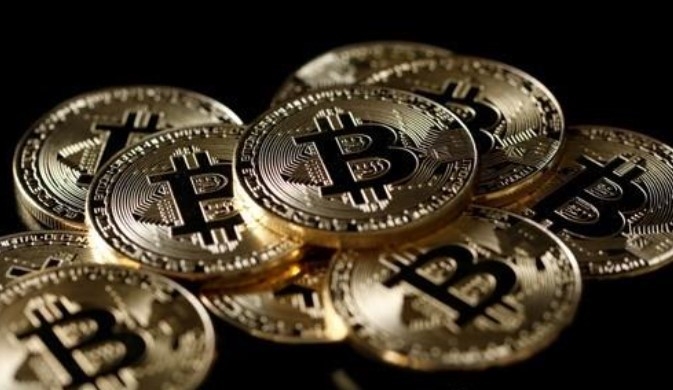![비트코인 관련 사진. [사진=연합뉴스]](https://i0.wp.com/www.youthdaily.co.kr/data/photos/20210206/art_16131257110193_fc65d6.jpg?w=560&ssl=1)
【Youth Daily】 Recently, as the price of Bitcoin reached 50 million won, it is soaring to the sky. Tesla announced that it had invested in bitcoin, and said it would consider allowing it as a vehicle purchase method in the future, and the oil is on fire. In addition, the New York Melon Bank also announced that it will deal with virtual assets including bitcoin, and optimism about the value of bitcoin is leading public opinion.
However, it is expected that 80% of central banks around the world will begin issuing and researching CBDCs, and it will continue to be difficult for Bitcoin to become an institutional currency beyond its status as an investment product.
CBDC (Central Bannk Digital Currency) refers to a digital currency issued by a central bank. Unlike real bills, it is implemented in digital form. In that it is issued by the central bank, it is different from most assets such as Bitcoin and has low volatility.
CBDC is classified into small payments and large payments. Most of the research conducted by central banks around the world is limited to micropayments, but Canada, Singapore, and Hong Kong are also paying attention to CBDC research for large payments.
It can be classified into a single ledger method (account method) in which a central bank or bank stores and manages CBDC accounts and related transaction information, and a distributed ledger method in which multiple participants manage the same transaction records.
Seol-Hwa Choi, a researcher at Korea Investment & Securities, explained, “Many countries are paying attention to CBDC in order to be able to prepare for economic sanctions from advanced countries and to take the initiative in monetary terms.” In fact, in December 2017, the President of Venezuela introduced the CBDC Petro (PTR) to counter US sanctions.
Researcher Choi said that it also aims to improve payment efficiency and increase financial inclusion.
Researcher Choi added, “CBDC has the advantage of being transparent and low transaction costs compared to the past because it allows transactions without intermediaries.”
Researcher Choi believes that it will also help to increase financial inclusion for emerging countries. In Cambodia, for example, only 22% of the population over the age of 15 has a bank account. Once the CBDC is issued, Cambodian citizens will be able to use more of their own currency.
In addition, he stressed that “when CBDC is issued and used, policy authorities will retain all relevant transaction records,” and “it is advantageous for maintaining the stability of the financial system.” This means that it is possible to monitor funds for criminal activities such as various money laundering and terrorism.
In addition, Researcher Choi evaluated that “Libra, a stablecoin launched by Facebook in 2019, has brought crisis awareness to central banks.” Unlike existing virtual assets such as bitcoin, Libra can be exchanged with legal currencies such as dollars and euros at a certain rate, and is designed to store value and buy bank deposits and short-term government bonds as a network that connects the world.
Accordingly, central banks around the world are promoting the issuance of CBDC research at a steep pace. According to the International Settlement Bank (BIS), about 80% of central banks around the world are studying CBDC. In addition, about 10% of central banks have begun pilot operations.
Mainly emerging countries are paying a lot of attention to the issuance of CBDC. Ecuador, Ukraine and Uruguay completed trials of CBDC for retail use, while the Bahamas and Cambodia issued CBDCs that can be settled in dollars and their own currencies last year.
The American attitude is also forward-looking. During the predecessor of the Trump administration, criticism was raised that virtual assets, including bitcoin, were based in the air, but in March last year, the Democratic Party included a plan to pay disaster assistance using digital dollars in the draft emergency assistance law for novel coronavirus infection (Corona 19). Made it. It is predicted that the Biden administration’s attitude toward the CBDC will also be positive.
Seol-Hwa Choi, the Korea Investment & Securities Research Institute, said, “The economic team of President Biden’s camp included a large number of people who are friendly to cryptocurrency.
In addition, as investors have recently focused on Bitcoin, the US administration has aroused a sense of crisis that the dollar’s position as the world’s key currency may be threatened. Accordingly, Researcher Choi predicted that the US is also likely to speed up the issuance of CBDC.
Among the developed countries, China’s CBDC issuance process is drawing attention. China launched a digital currency research TF team in 2014, the year after Bitcoin’s first breakthrough of $1000, and began researching and issuing DC/EP.
DC/EP stands for Chinese version of CBDC. In 2017, People’s Bank banned bitcoin transactions in China and also banned retail payments in the banking system. The People’s Bank has virtually banned bitcoin transactions, given that bitcoin can threaten monetary policy power and has no credit collateral.
【Youth Daily = Reporter Kang Jeong-wook】
